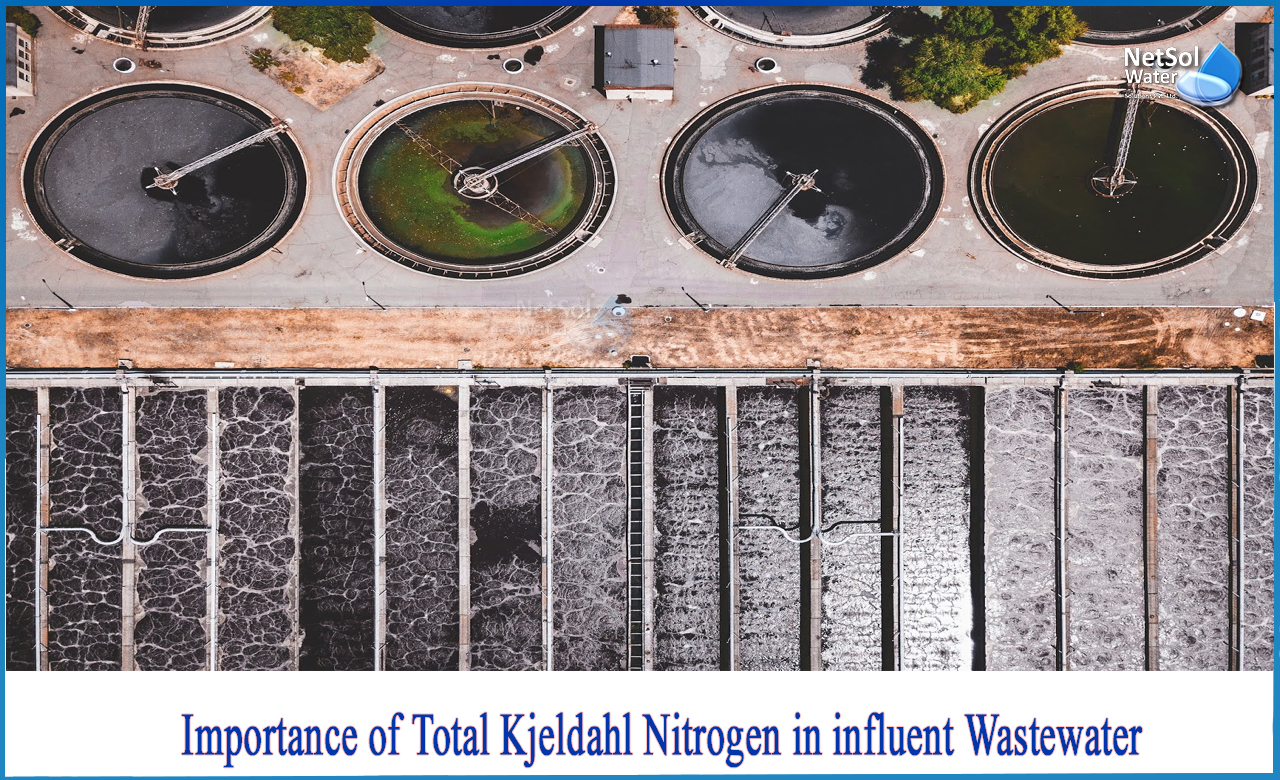What is the Importance of TKN in influent wastewater?
Nitrogen is found in nature in a variety of forms. In the nitrogen cycle, it is changed several times before entering water and wastewater via fertilizers, human and animal excretions, and manufacturing waste products. The most important substances for determining nitrogen in water and wastewater are ammonium, organic nitrogen, nitrate, and nitrite.
The following values are examined depending on the standard and the aim of the determination:
TKN (Total Kjeldahl Nitrogen) + Nitrate + Nitrite = Total Nitrogen
TKN (Total Kjeldahl Nitrogen) – ammonium = Total organic nitrogen
Nitrate + nitrite + ammonium = Total inorganic nitrogen
Total organic nitrogen + ammonium = TKN (Total Kjeldahl Nitrogen).
What does TKN test determine?
The total Kjeldahl nitrogen (TKN) test determines the amount of organic and ammonia nitrogen. At various points in the wastewater system, municipal wastewater treatment plants routinely detect both TKN and ammonia quantities. In contrast, industrial wastewater treatment plants often measure only the ammonia concentration, ignoring a significant contribution to ammonia loading into their biological reactor from the breakdown (conversion) of organic nitrogen to ammonia nitrogen.The TKN test combines organic and ammonia nitrogen content measurements into a single value. To calculate the organic nitrogen concentration, you must conduct a second ammonia test and deduct the result from the TKN value.
It will be impossible to determine nitrification efficiency when the influent TKN concentration is higher than the ammonia concentration because ammonia is added to the wastewater from the breakdown of organic nitrogen and at the same time ammonia is removed (nitrified) in the bioreactor. Knowing the TKN and ammonia concentrations in the influent and effluent can help you understand how the biological system is handling (nitrifying) the applied ammonia load.
Role of TKN in wastewater treatment systems
The creation of ammonia from biological waste breakdown by heterotrophic organisms is taken into account by Influent TKN. While some nitrogen is needed in cell division and other metabolic processes, the remaining nitrogen is physiologically transformed to ammonia. Your nitrifiers use this ammonia to function (ammonia oxidizing bacteria & nitrite oxidizing bacteria).
As a result, when evaluating ammonia removal efficiency across a system, influent TKN is a stronger indication of efficiency than influent ammonia. In some systems, the influent TKN is now 90% ammonia. In that circumstance, influent ammonia is perfectly OK. You can just run influent ammonia if your TKN:Ammonia ratio is stable. Others with erratic organic nitrogen loading should use TKN on a daily basis.
Conclusion
Proteins, amines, amino acids, urea, nitrate, nitrite, and ammonia are among the nitrogenous substances found in wastewater. We usually just check at ammonia, nitrite, and nitrate because of permits. However, we should pay greater attention to total nitrogen at the wastewater system's influent.The total Kjeldahl nitrogen (TKN) in the influent includes all organic, ammonia, and ammonium. Organic nitrogen is transformed to ammonium via digestion, which is subsequently removed via distillation. We can calculate total organic nitrogen (TON), ammonia, and total Kjeldahl nitrogen once all organic nitrogen has been transformed to ammonia. The TON is eventually transformed to biomass and ammonia/ammonium in biological treatment.
If your ammonia removal efficiency appears to be low, or if ammonia levels rise across a basin, you should use TKN in conjunction with ammonia statistics to better characterise what's going on inside the biological treatment unit.
Netsol Water provides a complete variety of standard and fully configurable wastewater treatment systems, as well as their comprehensive maintenance. Choosing a trained, accredited, and experienced wastewater system specialist will considerably boost your chances of long-term satisfaction with your overall system.
We are also delighted to assist you in the diagnosis and treatment of wastewater. We have qualified technicians on hand to provide a wide range of professional repair and modification services. Each system is custom-built as per the needs of our client’s. To begin the conversation, please contact us at +919650608473 or send an email to enquiry@netsolwater.com for further information or product purchase related query.



